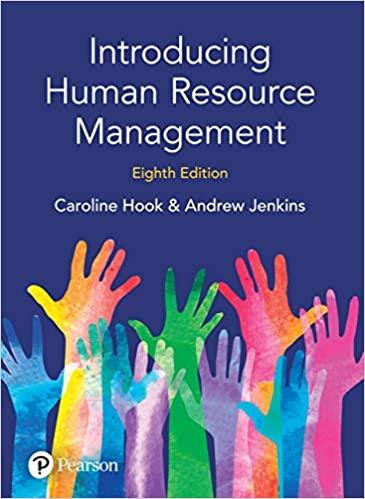I have lived in four countries: South Africa, where I grew up, the US, where I was
Question:
I have lived in four countries: South Africa, where I grew up, the US, where I was a teenage exchange student, Greece, where I learnt how to be a journalist, and the UK or, more specifically, London, where I have now spent the majority of my life. Each of those places changed me, but did they make me more self-aware? Did they give me a better understanding of my values and how they interacted with the culture surrounding me? And does that make me a better, more insightful employee than colleagues who stayed in the same place? A group of academics from the Massachusetts Institute of Technology and Rice, North Carolina and Columbia universities conducted a range of studies on whether being an expatriate gave people greater personal insight and concluded that it depended on what sort of expatriate they were.
The researchers looked at global travellers’ “self-concept clarity” and whether those who lived abroad developed ideas of themselves that were “clearly and confidently defined, internally consistent and temporally stable”. These alert, self-aware people are the kind of employees and leaders that every organisation wants. Many companies send their most promising people abroad hoping that this is how they will turn out. But being thrown into an unfamiliar environment can be disorientating. Not everyone thrives.
And some seem to come home unchanged, apart, possibly, from a firmer conviction that their way of doing things is best. The researchers constructed a range of tests, with MBA students and others, to look at how Americans were changed by living in other countries and how foreigners were changed by coming to the US. Some of the studies relied on participants’ own views on how confident they were about their values, asking them to evaluate whether “I have a clear sense of who I am and what I am”. But, more significantly, the academics also studied how well their subjects’
self-assessments stacked up against the opinions of their peers.
In general, as you would expect, they discovered that their subjects had found living in another country a self-clarifying experience. “No longer immersed in the values and norms that they take for granted, people are frequently faced with new situations that prompt them to reflect on the dissimilar values and norms of the foreign culture. Such recurrent reflections may strengthen self-concept clarity because they make people more confident in what they actually believe and, ultimately, who they really are,” they wrote in the Organizational Behavior and Human Decision Processes journal. But those benefits were not uniform. Not everyone came home with greater self-insight. Depth was more important than breadth.
What mattered was not how many countries people had lived in, but how long they had spent away. The writers make clear that this is work in progress, part of a developing body of research into the effect of living in different cultures.
I would be interested in seeing changes in self-perception based on how deeply people are forced to immerse themselves in a foreign culture, how different that cultures is from theirs, and whether they have navigated that culture in its own language.
Going to the US and UK were challenging experiences for me. Both are deeply textured societies and far more complex than they first appear, but I was a native speaker of the language and had grown up reading the two countries’ books and watching their movies. Greece was a far bigger challenge. I worked for small local employers and then for myself, having to negotiate everything from renting a flat to finding office space in another language that I had to learn fast. The distance from my own culture was far bigger and the challenge to my existing values far greater.
It...........
Questions 1. What is an ‘international assignment’ and why do organisations make use of them?
2. Why do some international assignees succeed whereas others fail?
3. How might we assess different national cultures and how could this information help us better understand a different culture?
4. What can a company do to prepare its employees for international assignments?
Step by Step Answer:

Introducing Human Resource Management
ISBN: 9781292230344
8th Edition
Authors: Caroline Hook, Andrew Jenkins





